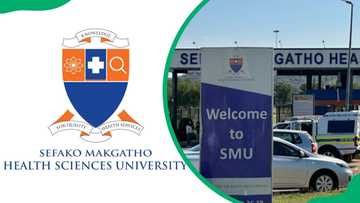Difference between NSC and SC: Which certificate suits you best?
The difference between NSC and SC qualifications in South Africa is minimal, with the learner's age and their wanting to redo or complete their matric qualification being the most notable factors. NSC qualifications are given to students who have currently passed matric, and SC qualifications are for individuals looking for a second chance at obtaining their national certificate.

Source: Getty Images
TABLE OF CONTENTS
Key takeaways
- There are multiple types of matric certificate passes, including the National Senior Certificate (NSC) pass, a Higher Certificate pass, a Diploma pass, a Bachelor's Degree pass and a Senior Certificate pass.
- An NSC and SC pass are the same qualification but differ slightly, as an NSC is given to current high school students and a SC is typically obtained by adults 21 and over who wish to finish or retake their matric certificate; the age may vary.
- The importance of NSC and SC certificates cannot be overstated, as an individual requires either one or the other to study at a tertiary institution or be considered for certain job positions.
The difference between an NSC and an SC
The notable difference between a National Senior Certificate (NSC) and a Senior Certificate (SC) matric certificate is that an NSC is given to current high school students who passed matric.
An SC is the same, with the exception of an SC being given to adults 21 and over who wish to either complete their education or improve their results.

Source: Getty Images
The subject requirements between NSC and SC qualifications are similar, with slight variations
The difference between NSC and SC certificates is minimal, with the following factors considered when hoping to obtain the qualification:
National Senior Certificate (NSC)
An NSC is described as the standard matric qualification for learners who have completed the CAPS syllabus and Grade 12. Students must pass a minimum of six subjects, with the following pass requirements:
- Home language: A minimum of 40% in the student's home language.
- Other subjects: A minimum of 40% in two other required subjects.
- Additional subjects: A minimum of 30% in three supplementary subjects.
Amended Senior Certificate (SC)
An Amended Senior Certificate (SC) is an alternative qualification for adults who either did not complete their secondary education or want to improve their matric results. Adults 21 and over qualify, and it is obtained through self-study or assistance. Individuals must pass a minimum of five out of six subjects to obtain it:
- Home language: A minimum of 40% in the student's home language.
- Other subjects: A minimum of 40% in two other required subjects.
- Additional subjects: A minimum of 30% in three supplementary subjects.

Source: Getty Images
Adult matric registrations for 2025 are over, but 2026 applications are open
The Department of Basic Education highlights that the deadline for 2025 matric registrations was February 7, 2025. However, registrations for 2026 will be reopened around October 2025 and will close at the end of January 2026.
Frequently asked questions
Now that the difference between SC and NSC qualifications is better understood, individuals may still have questions regarding their specific qualifications. Students can use their SC qualifications at most national universities, and students may combine NSC and SC results for a higher grade under specific terms and conditions.
Do universities accept SC?
Although many South African universities accept SC qualifications, not all tertiary institutions do. Factors such as meeting specific subject requirements, the student's achievement levels, and meeting the minimum Admission Point Score (APS) also play a factor.

Source: Getty Images
Can students convert an NSC to SC?
Adult students 21 and older may convert from an NSC to an SC to complete or redo their qualification. However, the qualification cannot be reverted to an NSC once done.
Can students combine NSC and SC results?
Individuals may combine their NSC and SC results to get one singular certificate, but must apply for a 'Replacement certificate: change of status' via the Department of Basic Education (DBE). Your highest six subjects are used from the combined results if the eligibility criteria are met, including meeting minimum pass percentages.
How can individuals get their NSC and SC results combined?
The Department of Basic Education's website, along with other sources, mentions the following steps:
- Step 1: Gather the relevant documents, which include a copy of your ID and copies of your NSC and SC results.
- Step 2: Complete the 'Replacement certificate: change of status' application form, which can be found on the Department of Basic Education's website.
- Step 3: Submit the completed application along with the relevant supporting documents to the Department of Basic Education.
- Step 4: Pay the replacement certificate fee and an additional fee relating to the combined results certificate, where applicable.
- Step 5: Wait for the certificate to arrive, which may take anywhere from four to six weeks.

Source: Getty Images
How long does it take to obtain an SC?
A typical NSC takes between three and five years within a typical secondary education environment. Obtaining an SC may take anywhere from one to six years, and factors such as the student's study pace and selected subjects play a role in completion time.
Final word
The difference between NSC and SC is minimal, with the qualifications being equal. The certificate's requirements differ slightly, and not all tertiary institutions accept SC without further requirements. However, obtaining an SC is still advised for those wanting a second chance at improving their marks or wanting to complete their secondary education.
DISCLAIMER: This article is intended for general informational purposes only and does not address individual circumstances. It is not a substitute for professional advice or help and should not be relied on to make decisions of any kind. Any action you take upon the information presented in this article is strictly at your own risk and responsibility.
READ ALSO: How to become a content creator in South Africa: a beginner's guide
Certain jobs do not require obtaining a matric certificate. Briefly.co.za wrote an article about how to become a content creator in South Africa, which usually does not require a secondary or tertiary education certificate to be considered.
Instead, content creators are required to have a certain set of soft and practical skills to be considered for the role. Having a notable online following is highly favourable when working with brands.
Source: Briefly News






